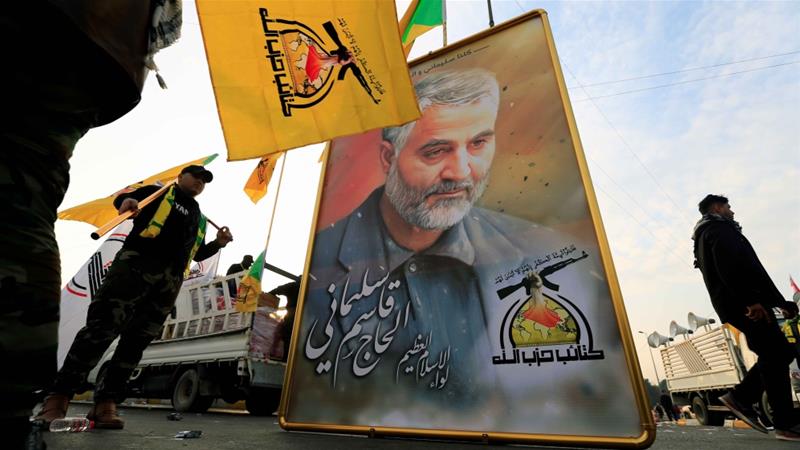So, it has reported that President Trump ordered the Office of Management and Budget to hold the funds for Ukraine which was in the NDAA passed by Congress. There was a stopgap provision in the NDAA that the funds would remain available until after September 30, which was after the end of the U.S. fiscal accounting period. The money was released on September 11. President Trump questioned what other countries are stepping up with financial and military support of Ukraine. It is unclear if the White House ever got a succinct report on that question. In fact, a few days before the Zelensky phone call, the OMB the aid was withheld, not after the call. Furthermore, Zelensky was a newly elected President and a new government, an unknown quantity.
The call between President Trump and President Zelensky was the genesis of the whistle-blower complaint. Countless people were on the call which is a procedural condition for all international foreign policy national security calls. Each call between the United States and a foreign entity are outlined, reviewed and prepped in full by those to be on the call.
The OMB is under the Executive Office of the President and it is responsible for measuring the quality of agency programs, policies and procedures. The agency also ensures that reports, rules, testimony and proposed legislation is consistent with administration policies, meaning evaluations and inter-agency reviews.
OMB’s Office of General Counsel provides legal advice and counsel to the Director and the OMB components and staff. In addition, the General Counsel’s Office manages the Executive Order and Presidential Memoranda process for OMB and the Administration; reviews and clears all legal and constitutional comments by the Department of Justice and other agencies on proposed legislation before such comments are conveyed to Congress; participates in the drafting of bill signing statements for the President; reviews all proposed legislative text comprising the President’s Budget and for all budget-related legislative proposals; evaluates legal issues in proposed regulations; convenes meetings of all agency general counsels and coordinates legal issues across agencies; and ensures OMB’s compliance with ethics laws, the Freedom of Information Act, the Federal Records Act, and other statutory requirements.
OMB’s Office of Legislative Affairs works closely with White House Office of Legislative Affairs, Federal Agency Legislative Affairs offices, and congressional offices on current legislative issues. The office conveys information and strategies to the Director to inform decisions on Administration policies. The office, in turn, disseminates budget materials, descriptions of relevant concerns, and statements to Congress to communicate the Administration’s positions. The Office of Legislative Affairs also advises the OMB Director and the organization on legislative issues and developments, provides expertise on the congressional budget process, supplies daily congressional reports to the Director and the OMB staff, oversees correspondence with the Hill, and manages the clearance and transmittal of the President’s Budget and the Administration’s Statements of Administration Policy.
LAWYERS AND MORE LAWYERS
So, now we have the General Accounting Office that publishes a report that President Trump broke the law by placing the aid on hold. The GAO is the congressional ‘go-to’ department that measures, often with bias the cost(s) of proposed legislation along with legal viability and other realities.

Now, remember that within the two articles of impeachment, neither allege a violation of law that the General Accounting Office report declared at the behest of Senator Chris Van Hollen (D-Md.).
So, a deeper look at the GAO shows that it is represented by the AFL-CIO’s International Federation of Professional and Technical Engineers, a PAC that gave 100% of political donations to Democrats…no Republicans.
Now, the GAO is is packed full of lawyers that is assigned to legal, accounting, auditing and other financial/legal duties requested by Congress. GAO engages in audits and investigations, but it has negligible enforcement power. Once a legal determination has been made, GAO has exhausted its regulatory authority. Regardless of the adjudicative outcome, GAO has no authority to exact fines, issue injunctions, or pursue further proceedings, criminal or otherwise. Instead, the Comptroller General reports the determination to Congress, to the president, to the offending agency, and to any other relevant agencies (such as the Department of Justice).
Seems that the GAO plotted with the Pelosi/Schiff operation in the House and likley Schumer/Van Hollen in the Senate…who advised the White House immediately that there could be issues legally or otherwise, if that is really the case regarding placing a hold on the Ukraine aid? No one it seems and procedures were not followed.
As for the accusations of withholding the money to force a Ukraine public statement to investigate all things Biden(s), hold on. On July 14, several days before the infamous phone call, the polls had Trump trailing Biden, Warren and Sanders. Sanders was 1 percentage point at the time behind Biden and Warren was a mere 2 percentage points behind Biden. Kamala Harris was 5 percentage points behind Biden. This was hardly a reason for President Trump to go full attack on Biden as is alleged. On the other hand, there as investigations continue, there are reasons for sure to question those aiding the whistle-blower, the continued corruption timelines of Ukraine and where Hunter Biden and his wide range of associates did some unsavory things still being determined.





